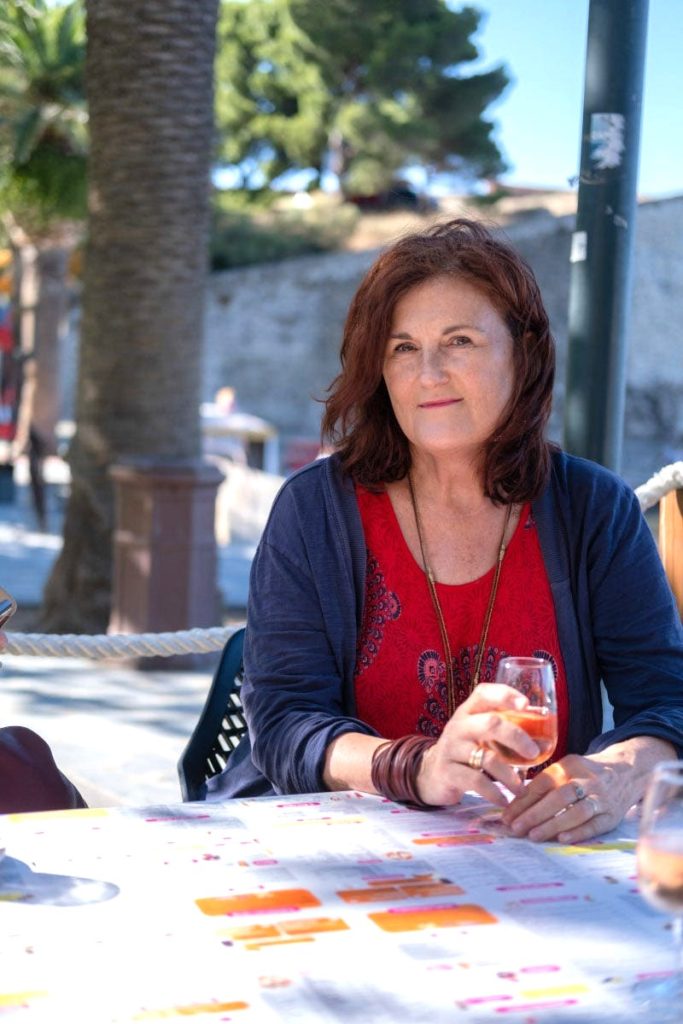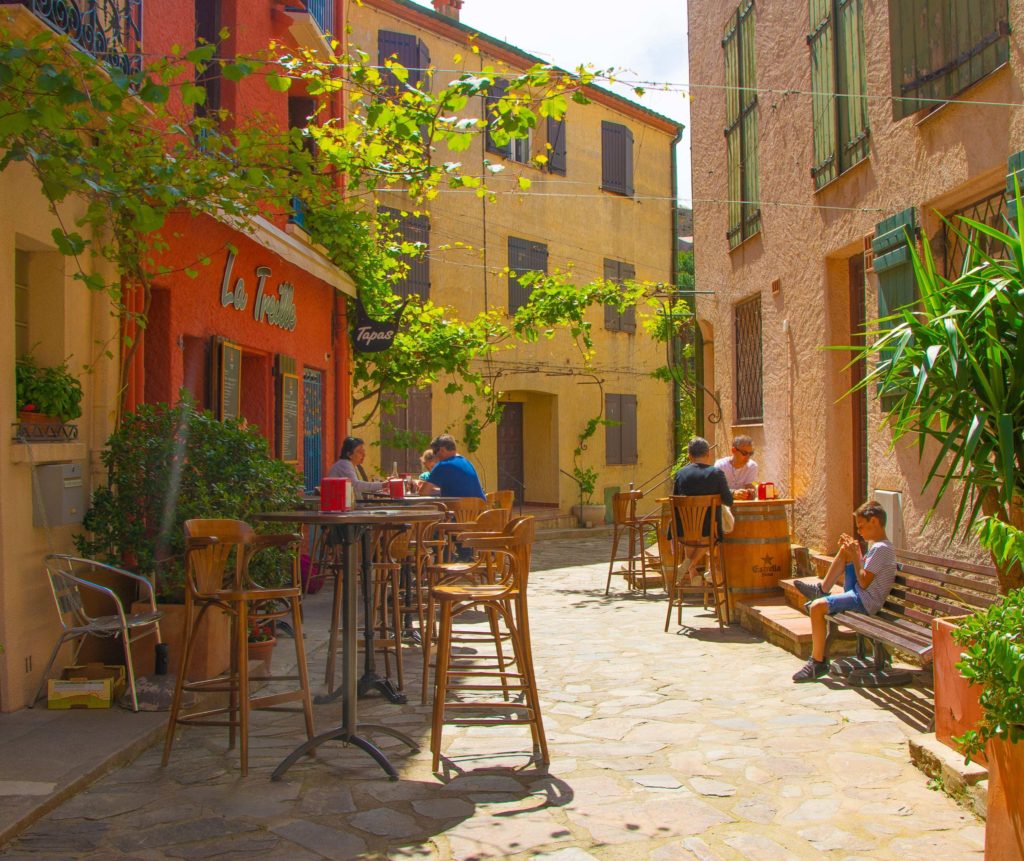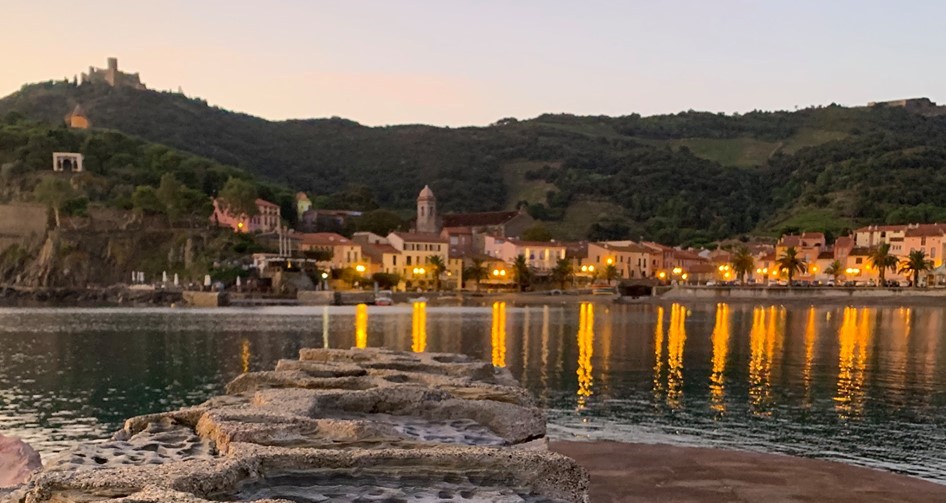Thank you so much, Karen Karbo, for letting me repost this piece from Karbohemia Confidential — AS
May 15 marked the four-year anniversary of our move to France, and one sign of our continuing intégration was my willingness to go under the knife. Americans often cite the universal health care system as one of the reasons they relocate to France. Without knowing how it works, how to manage it, or what to expect if/when faced with a serious health issue, we adore the French system, if only because a broken ankle never leads to personal bankruptcy.
Doctors in France are easy to see – for 25 euros ($27) anyone can rock on up for a consultation. Doctors’ offices are clean and plain and look as if they’ve been designed by the same people who do the DMVs in the States. You will never find a salt water fish tank in the waiting room of a French doctor. There will never be anything but an uncomfortable plastic chair in which to sit and wait.

Photo: Karen Karbo
In July 2020 I developed a vision problem with my right eye. One day, everything looked wavy. Tree trunks appeared bent; piles of books slightly sloped. Recall the Dali painting The Persistence of Memory (Melted Clocks) and you get the idea. In 2021, during a brief window between COVID strains, I had it looked it and was referred immediately to a retinal specialist. I went home and spent a feverish half-hour Googling disorders of the retina and saw that whatever was wrong with me, the only solution was eye surgery. Sûrement pas, hell no.
There’s so much about getting older no one warns you about. Crow’s feet, chin hairs, skin tags, blah, blah blah. But who mentions the vitreous humor? By all rights this should be the name of a New York comedy club, but it is actually the gel between the lens and retina, the goop that puts the ‘ball’ in eyeball. As you age the vitreous humor slowly shrinks, pulling away from the retina. Sometimes the eyeball interprets this pulling away as injury (insert relationship metaphor here), and the body, in an effort to heal thyself, creates a thin layer of scar tissue that winds up causing blurry, wavy vision. As the scar tissue continues to thicken, vision continues to worsen.
I put off making the appointment to see the retinal specialist for two years, which means, I suppose, that I was willing to go blind in my right eye. Then one day it occurred to me that I might not only be blind in that eye, but that I would also be one of those very old people with a shrunken eye. I see them around Collioure from time to time (we have an impressive population of octogenarians).
Some of them seem to have eyes that look a little deflated. One woman is devastatingly chic, with the requistite slash of scarlet lipstick and gold bangles, but one eye is definitely less round than the other, like a week-old party balloon. I have no idea whether a shrinking vitreous humor is to blame, but as I could think of no social situation in which I might approach her and inquire, either in French or English as to the cause of her disappearing eyeball, I made the appointment.

Photo: Karen Karbo
French medical schools don’t have a bedside manners class. My retinal specialist, who was very handsome, but not very tall, chided me for not coming in when I was referred to him two years earlier. I said that I had procrastinated because I was afraid of eye surgery. He waved away my excuse. What I didn’t say was that my fear was based in part on prejudice, that even though I knew the French système was superior, how did I know French doctors were? Did I trust France enough to permit a doctor who did not go to any of the medical schools that graduated the physicians of “Grey’s Anatomy” to cut open my eyeball, drain the vitreous humor, pluck out the offending membrane, refill my eye (ACK ACK ACK), and close it up with a tiny perfect stitch?
Before the surgery, I had an appointment with an anesthesiologist, who assured me there would be sedation, a nice IV line flowing with sweet sweet propofol. Okay, I thought. Like a colonoscopy, only my eyeball. I could do that. Imagine my surprise when I blissed out for a scant three minutes, just long enough to allow him to administer a nerve block, and the nurse to strap my head to the table.
When they rolled me into the bloc, the Soviet-sounding word for operating room, I was absolutely not floating on a heavenly cloud of sedation. The state is called awake-and-aware, otherwise known as oh-fuckity-fuck-this-cannot-be-happening. I was so awake and aware, I was able to chat in French with my handsome retinal specialist as he worked. I asked him how it looked “in there.” I accurately conjugated my verbs. When he mentioned “wound” (I will spare you the context), I was able to expound on the difference between wound (woond) and wound (wownd).
The whole thing took 13 minutes. At the end, the retinal specialist said in English, “now you ‘ave a ‘ealthy retina.” The nurses wished me “bon après-midi” as I was rolled out into the hallway, and about 16 seconds later I was helped to my feet and escorted back to the changing room. After that, I sat in a lounge with six other people, each of us sporting a white eyepatch, sipping a café crème from a small paper cup and nibbling a brioche.
The next morning, I went for a check-up. The retinal specialist removed my eye patch, looked at my eyeball through one of his high tech gizmos, and pronounced it a success. He also thanked me for clarifying the correct English pronunciation of wound. That was very helpful, he said, as English can be difficult, although of course, not as difficult as French.
I now have to administer three different kinds of prescription eye drops four times a day, and because this is the French health care system, the whole lot of them cost 8 euros. The use of the clinic cost 54 euros. The services of the anesthesiologist who administered the thimbleful of propofol cost 50 euros (possibly, he was overpaid), and the wizardry of my handsome, highly trained retinal specialist cost 300 euros. Total: 412 euros, 75% of which will be reimbursed directly into my bank account. The brioche was also quite good.
Link to Karen’s original post, which includes a way to sign up for and support her work.
